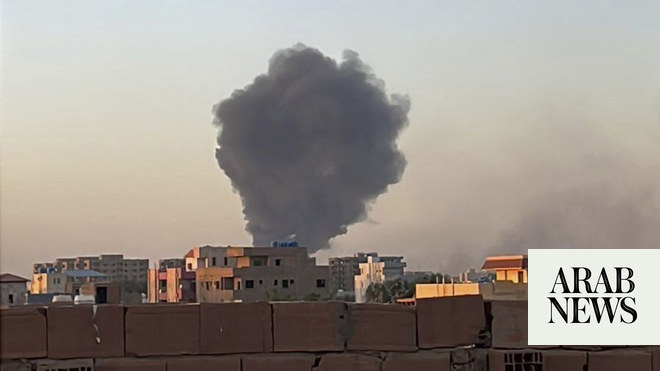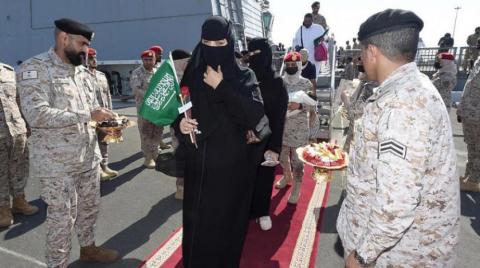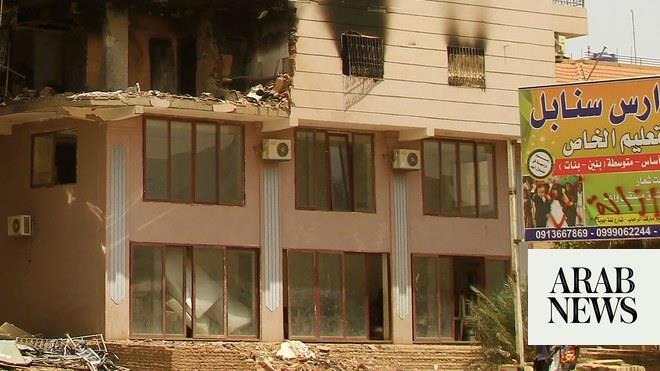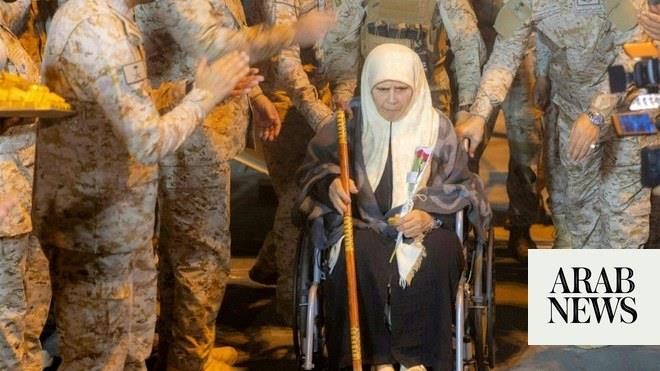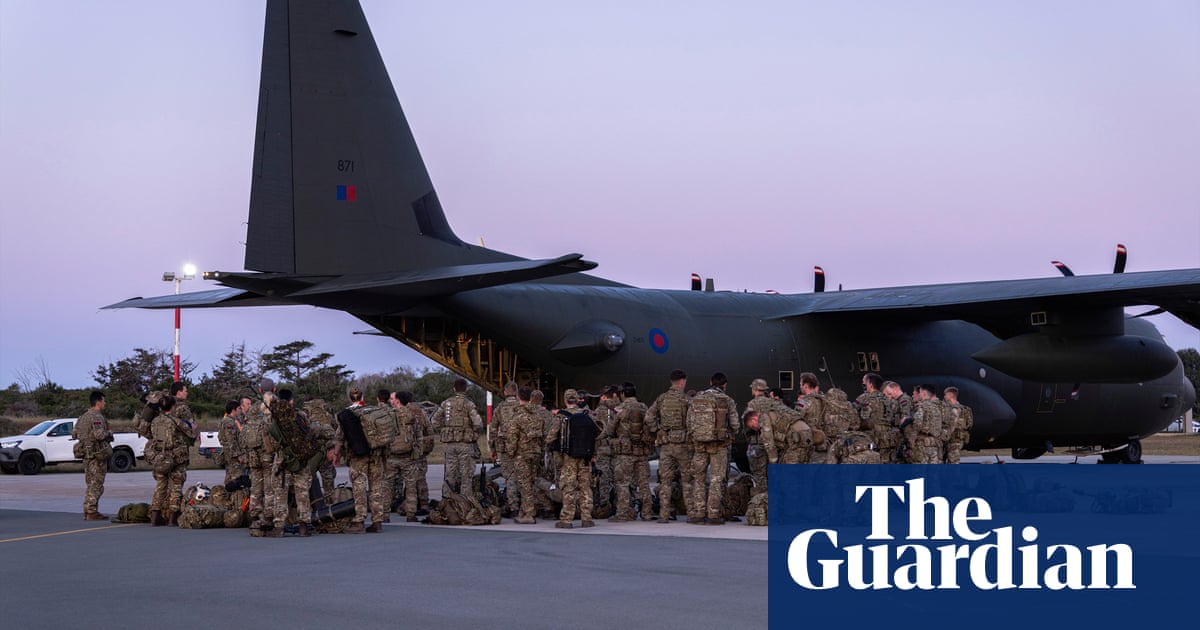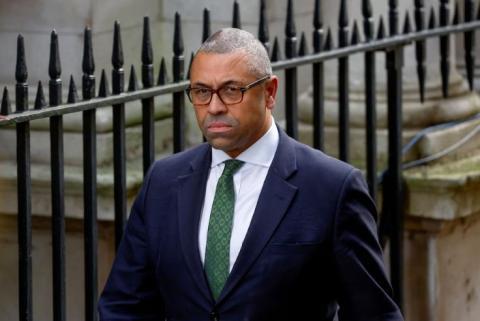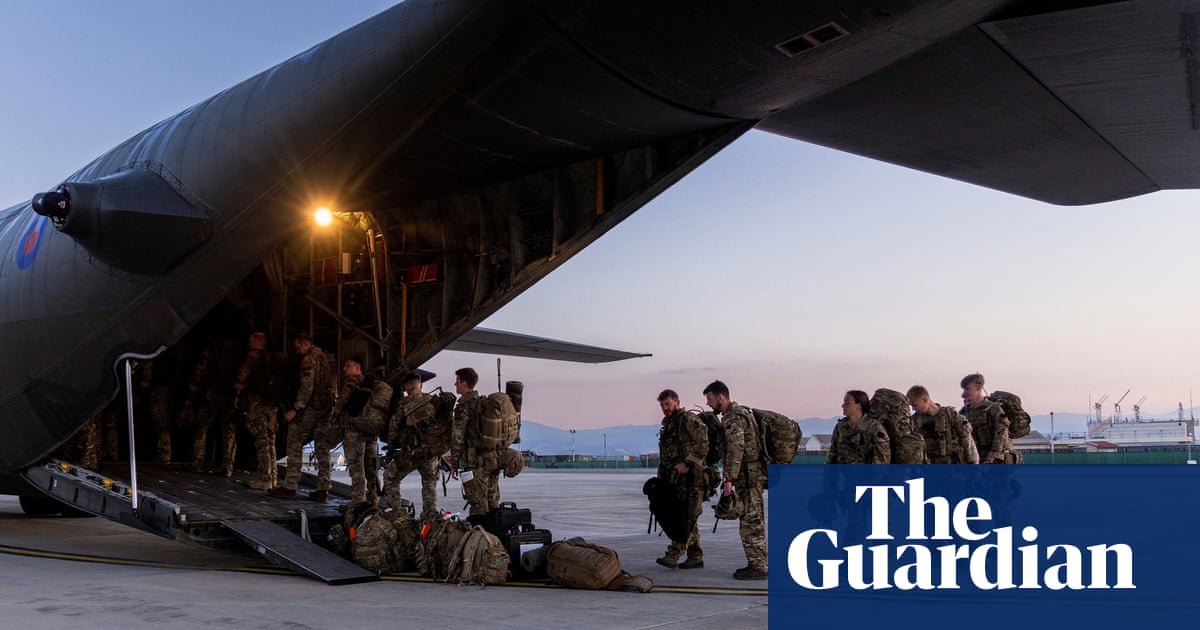
The British government is taking advantage of a 72-hour ceasefire agreed by the warring factions in Sudan to evacuate UK nationals from the country, following intense criticism that it had missed a window of opportunity to evacuate more than British diplomats and their families on Sunday.
RAF transport planes have been flying into the Wadi Seidna airfield, north of Khartoum, from where UK nationals are due to be flown to Cyprus, which is being used as a staging post by the British military.
The operation involves A400M Atlas planes, with a passenger capacity of up to 200, and C-130 Hercules, with a capacity of about 120.
An RAF C-130 Hercules that has travelled back from Khartoum to Cyprus was understood to have been carrying an advance team, rather than being the first evacuation flight of the operation. The Ministry of Defence released pictures of Royal Marines and headquarters staff loading up on to a Hercules plane on Tuesday morning,
The flights to Cyprus, which should take between four and five hours, are open to British passport-holders and priority is being given to family groups with children, elderly people and individuals with medical conditions.
The foreign secretary, James Cleverly, told UK nationals that they must make their own way to the airfield. “We have said that we are unable to provide escorts from where British nationals are to the airhead, they will have to make their own way there – as indeed has been the case for the nationals of other countries,” he said.
“It is important to remember that ceasefires have been announced and have fallen apart in the past so the situation remains dangerous, volatile and unpredictable,” Cleverly told broadcasters. “It is impossible to predict how long the ceasefire will last. It is impossible to predict how long any other route to evacuation will remain open.”
It is thought more than 2,000 people, many dual nationals, have contacted the Foreign Office seeking to leave Sudan since violence broke out 10 days ago pitting army units loyal to its military ruler, Gen Abdel Fattah al-Burhan, against the Rapid Support Forces, led by Mohamed Hamdan Dagalo, known as Hemedti.
The operation is limited by the size of the airfield, which the UK said on Monday could carry only two Atlas-size planes at a time. It is likely to be shared with countries other than the UK while the ceasefire agreed holds.
Only British passport-holders and immediate family members with existing UK entry clearance are eligible to board the evacuation flights. The Foreign Office said other exit routes were being considered, with two British military ships prepared for a possible evacuation.
The fact that the airlift was announced in advance reflects the need for the Foreign Office to communicate with a large number of British nationals so that they know a rescue operation is under way and that travel to the airport will be required once they are called forward.
It was being stressed that British diplomats are on the ground to coordinate, suggesting assurances are being given that the British military will not be going through the city.
The announcement of the ceasefire was critical to the decision to attempt the operation.
Sir Nicholas Kay, a former British ambassador to Sudan, warned that the situation during the ceasefire remained “precarious”. He told BBC Radio 4’s Today programme: “The security situation can change very quickly, the command and control over forces isn’t complete and there is no trust between the two sides so they might kick off again.”
The former diplomat warned that moving around Khartoum could be “very difficult”, with the bridges crossing the Blue and White Nile rivers being controlled by the armed groups.
There is concern that British nationals will try to get to the airfield without waiting to be called, risking a rush for the evacuation planes. The prioritisation process in Afghanistan during the botched Kabul evacuation in 2021 proved difficult partly because politicians struggled to stick to clear criteria and responded to lobbying by Downing Street or MPs acting in the wake of their constituent’s pleas.
The US announced on Monday evening that the two opposing forces had agreed a three-day ceasefire. Previous attempted ceasefires have failed over the course of 10 days of fighting that has so far killed at least 427 people and wounded more than 3,700, according to UN agencies.
Hours before Blinken’s announcement, the UN secretary general, António Guterres, had warned that the fighting could “engulf the whole region and beyond”.
British ministers have been challenged repeatedly to explain how other countries had managed to evacuate at least some of their nationals, and whether the UK had wasted a window of opportunity to extract large numbers on Sunday, during a brief lull in the fighting.
France has airlifted 491 people from 36 countries, including 12 EU nations, to Djibouti since Sunday, according to the foreign ministry. They included two Greeks and one Belgian who had been wounded, as well as the German and Swiss ambassadors, it said.
Two Italian military planes landed in Rome on Monday carrying 83 Italian nationals and 13 citizens of various nationalities, who had first been evacuated to Djibouti.
James Heappey, the UK minister for the armed forces, had said in a briefing on Monday that the UK recognised “the job isn’t done” when it came to rescuing the British and dual nationals trapped in Sudan.




